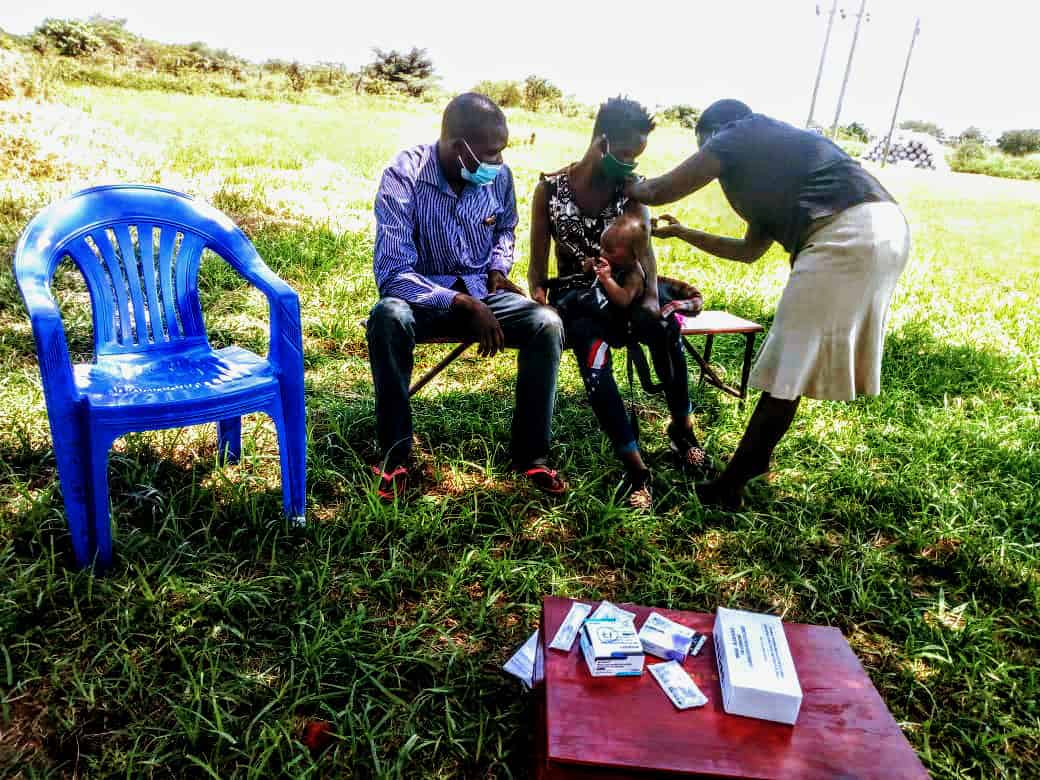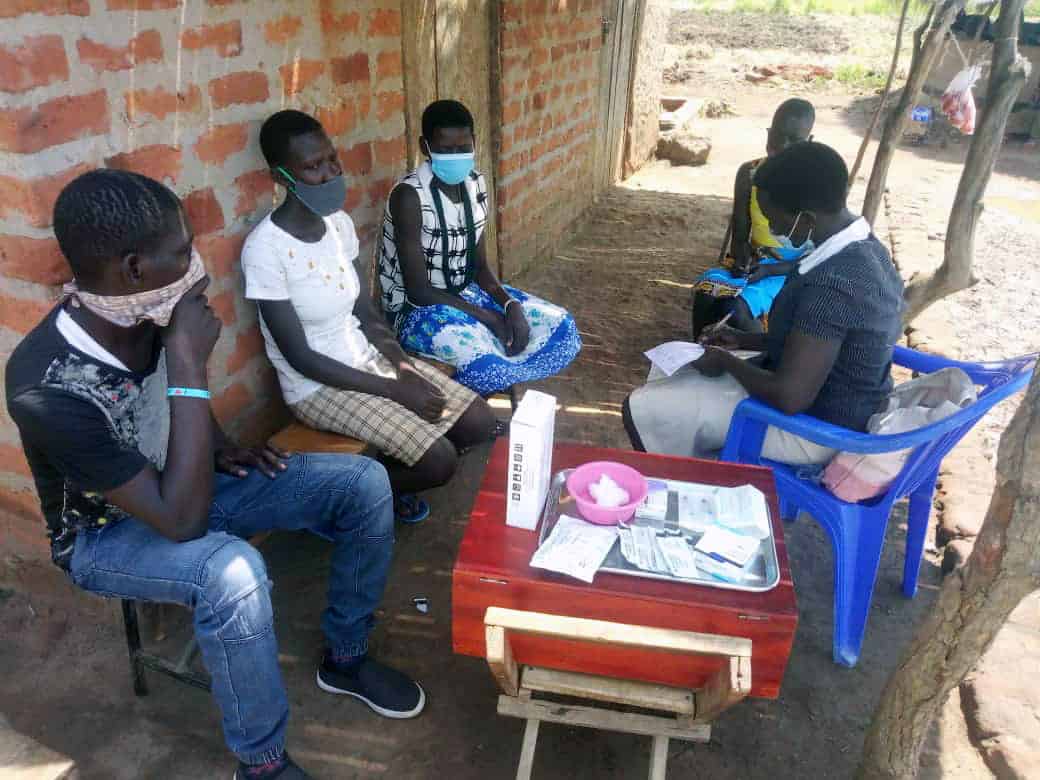Young Ugandans Increase Access to Family Planning during the Pandemic
September 29th, 2020 | story
In a village in northern Uganda, Sharon, a 23-year-old mother of two, met her friend Immaculate at the trading center. Immaculate was carrying a box. “What is in the box?” Sharon asked. “If you lead me to your home, I’ll show you,” said Immaculate.
When they arrived, Immaculate told Sharon and her husband that she was part of a team of community volunteers who were trained to provide information and short-term family planning options to people in the community. She then opened the box, which contained birth control methods, including injectables, contraceptive pills, and condoms.

Immaculate explained each of the methods and their benefits to Sharon and her husband. The couple chose the Sayana Press, an easy-to-use hormonal birth control injection for women, which Immaculate gave to Sharon.
This was a typical day for Immaculate, one of 91 DREAMS peers trained by the USAID Regional Health Integration to Enhance Services-North, Lango project (RHITES-N, Lango) to provide community family planning, especially for young people, in Uganda’s Lango sub-region.
DREAMS peers meet adolescent girls and young women in places where they feel safe. This approach has especially been effective during the COVID-19 pandemic, which has disrupted health service delivery in the areas where USAID RHITES-N, Lango works and the country as a whole.

Despite the service disruption, the need for family planning remains, especially in Lango, where the rate of teenage pregnancies is higher than other parts of the country.
Young people face several barriers to sexual and reproductive health services. They do not feel safe or welcome at health facilities, especially when it comes to family planning.
Young women and couples are more comfortable getting family planning information and services from us [their peers] because they fear being judged by some health workers at the facilities,” said Immaculate.
Throughout the pandemic, the project has been working with district health teams in Lango to ensure family planning remains on the district health agenda. “We are seeing a marked improvement in the number of young people receiving family planning services since the community family planning intervention began. We hope that this activity can be scaled up to increase access,” said Rose, a midwife who works at a community health center in Lango.
About the USAID RHITES-N, Lango project: RHITES-N, Lango works with the Government of Uganda to increase people’s use of sustainable, high-quality health services in Uganda’s Lango sub-region. The project provides a platform for communities, local governments, civil society organizations, and private sector actors to improve the health of all residents. RHITES-N, Lango strengthens and integrates health services in HIV, tuberculosis, maternal and child health, family planning, malaria, nutrition, and water and sanitation. The project also focuses on system-level challenges such as having enough well-trained health workers and ensuring health data are used to make programming, budgeting, and other decisions. The DREAMS (Determined, Resilient, Empowered, AIDS-free, Mentored and Safe) partnership is an ambitious public-private partnership to reduce rates of HIV among adolescent girls and young women in the highest HIV burden countries. The USAID RHITES-N, Lango project implements DREAMS in four districts in Lango.
We strive to build lasting relationships to produce better health outcomes for all.